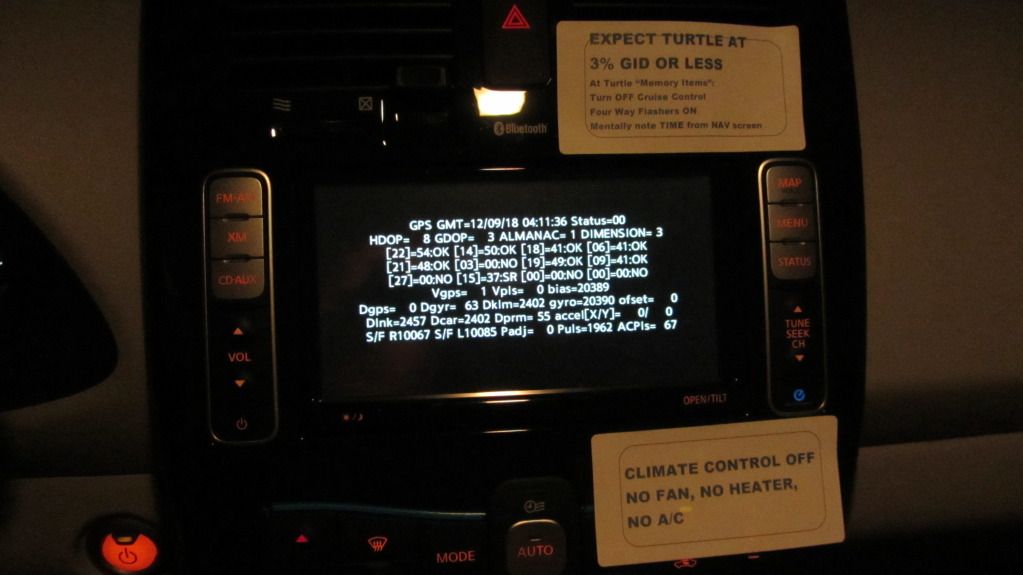Thanks Tony for all the effort you put into getting this test implemented. Thanks also to the others that were up all night getting the cars ready and everyone that volunteered their Leaf and time for the cause. When I arrived in the morning, everything was set up efficiently and ready to go. Quite impressive. I am disappointed at the "nudges" ITT that weren't there criticizing the effort because apparently testing wasn't performed under perfect laboratory conditions. I am in the medical field, I have seen/reviewed many clinical trials and I can tell you that Tony got this as right as anyone could have with the time constraints and multiple issues that needed to be dealt with.
I just dropped my Leaf off at the dealer for my battery test. The tech told me I would receive capacity data in the report I get tomorrow when I pick the car up. He said it is quite in depth. We'll see. All questions I had about capacity and names of people I could speak with about this were pushed off by the tech. He did tell me he thinks this is a heat related issue. I was surprised to hear that type of statement from him.
Thanks again Tony for not wasting my time. I put myself and my family up in a hotel overnight to be able make the test and it was worth it just to see you pull this off! WOW
I just dropped my Leaf off at the dealer for my battery test. The tech told me I would receive capacity data in the report I get tomorrow when I pick the car up. He said it is quite in depth. We'll see. All questions I had about capacity and names of people I could speak with about this were pushed off by the tech. He did tell me he thinks this is a heat related issue. I was surprised to hear that type of statement from him.
Thanks again Tony for not wasting my time. I put myself and my family up in a hotel overnight to be able make the test and it was worth it just to see you pull this off! WOW

